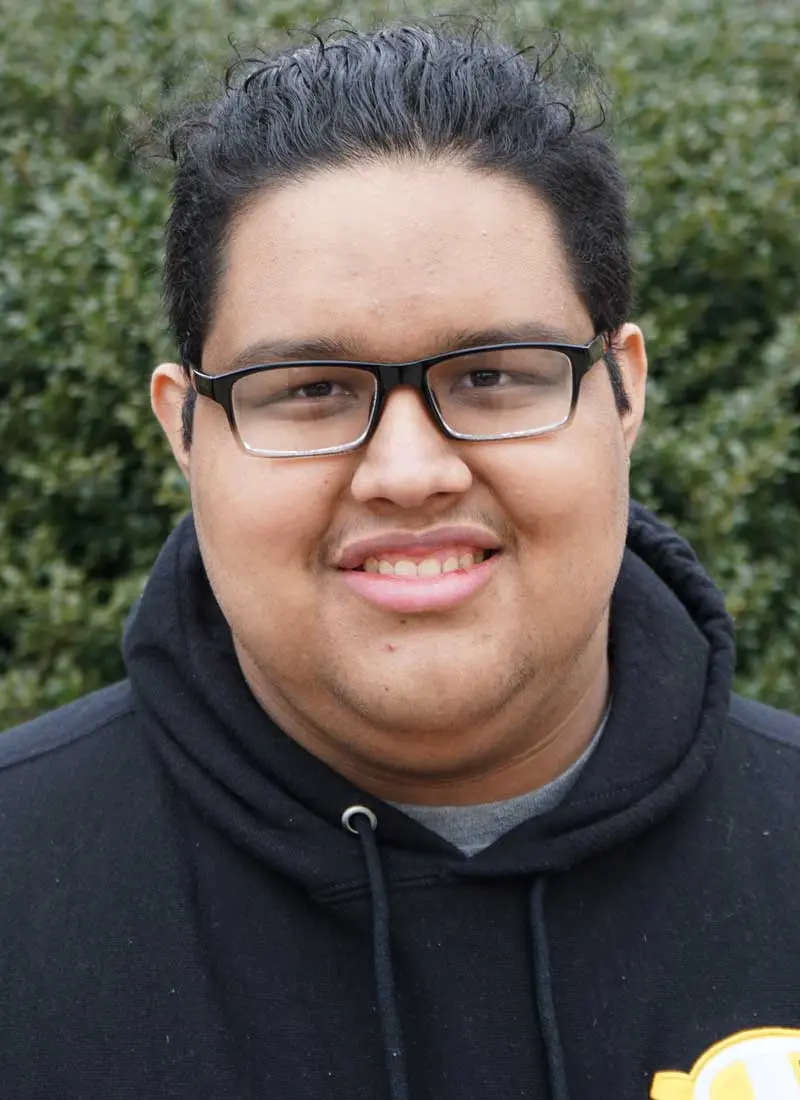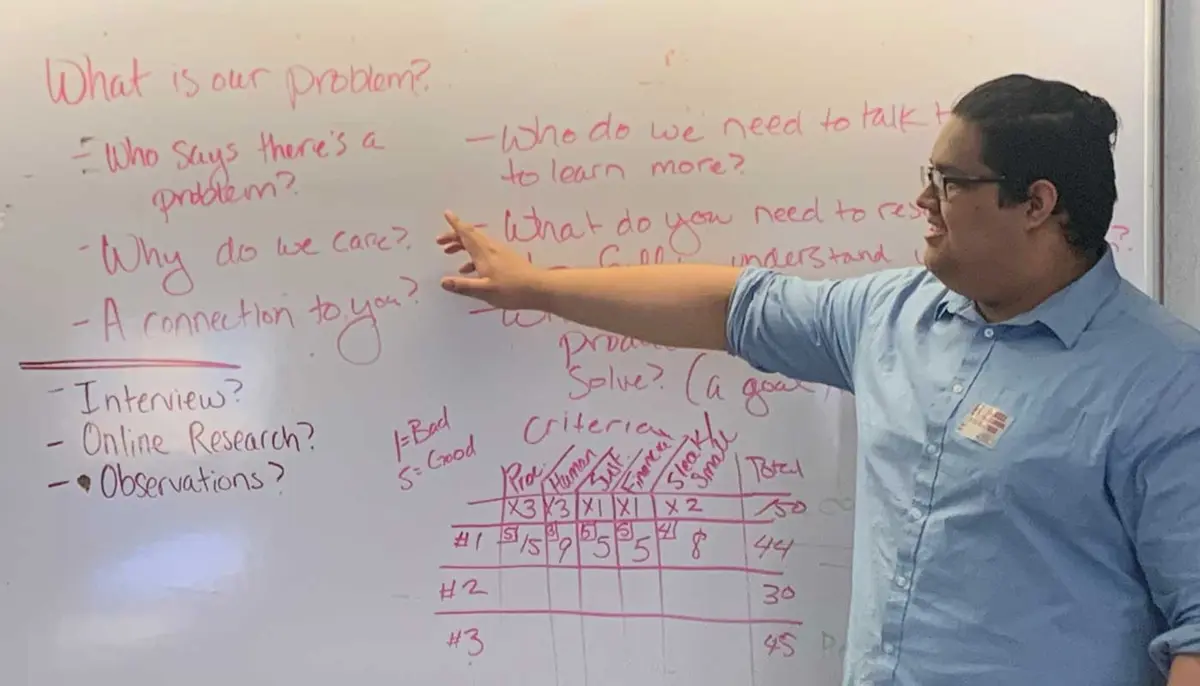When electrical engineering major Javier Palma was a child, he moved around a lot – among Arizona, California and Texas – and eventually to Waltham and then Lowell, Massachusetts, where he went to high school.
Those frequent moves made it difficult for him to build connections with his teachers. And some of his earliest teachers were more discouraging than helpful, he says.
“There were some who, if you gave a wrong answer, it was just, ‘Be quiet.’ Others, I didn’t feel comfortable with,” he says. “The biggest problem with me was not being able to trust and come to teachers for help when I needed it most, due to early experiences in the classroom.”
He decided to join the UTeach program when he started his engineering studies at UMass Lowell so he could be the kind of teacher that he needed as a child. UTeach is an education minor that prepares students in STEM fields for teaching jobs. Graduates who complete their student teaching get an initial teaching license in their area.
“At first, I thought I’d do UTeach for fun,” Palma says. “By the time I figured out it was hard work, I was committed because I was starting to learn stuff that showed me the importance of how teachers relate to kids.”
As a junior, Palma is preparing for full-time student teaching by presenting lessons in an Introduction to Engineering Design class at Lowell High School. His host teacher, Megan Pederson, taught him in the same class when he was a student at Lowell High, just a few short years ago.
Palma says he will probably work as an electrical engineer for a few years when he first graduates – he had a good experience interning in cybersecurity at Mitre Corp. the summer after his sophomore year – but then he hopes to teach.
He wants to be that welcoming teacher for all children and set an example for students who may face additional challenges or discrimination because of their home language, race, gender, sexual orientation or economic circumstances.
“I want to be a teacher who can create a much more comfortable classroom environment,” he says. “UTeach showed me the importance of teaching the next generation ... without any variation in how students are treated based on those factors.”


